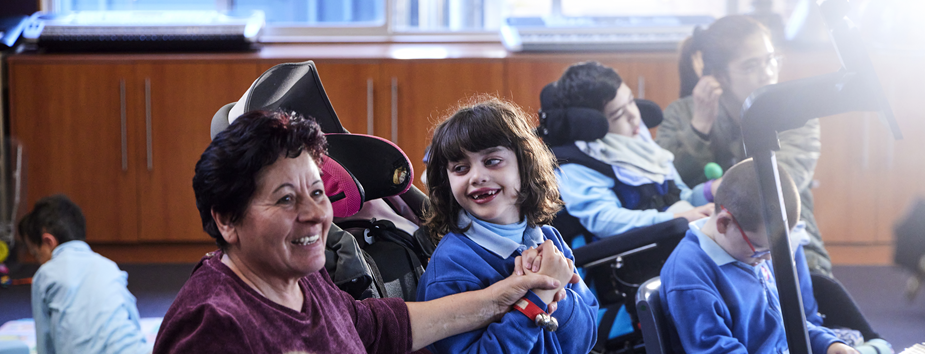Ryans Story

The Morris Children’s Fund has given lifechanging support to thousands of children, like Ryan White.
Like most kids, Ryan White was always captivated by the idea of playing with his sisters and friends in the cubby house of his family’s suburban backyard, yet that simple activity was out of his reach.
“It was heartbreaking,” recalls Nadine, the 10-year-old’s mum. “Ryan would want to get in there, but he couldn’t because he'd need to be in a wheelchair, so he was always relegated to the outside and felt really separated from that play.”
Ryan lives with cerebral palsy which has severely limited his use of his arms and legs, Nadine explains. It’s also impaired his speech and a feeding tube helps him with nutrition, although it “definitely has not impaired his wicked sense of humour,” she laughs.
Intent on helping Ryan to feel more included, Nadine turned to the Morris Children’s Fund, a charity established by Garry Morris OAM in 2005 with a mission to enhance the quality of life for children with severe disabilities and their families, and a recipient of St.George Foundation community grants.
“With their help we now have this really cool wheelchair accessible cubby house with low windows and a ramp up into these double doors, which Ryan uses all the time,” she says, adding that the charity also helped the family to buy a specialised bike trailer so Ryan can be included in family bike rides.
Nadine had first come across the small charity when Ryan was two and required intense physiotherapy which came at a cost well beyond what the family could afford. “The therapy made an immense difference to Ryan, helping him to build strength and learn to use his body in ways that we weren't learning previously,” she recalls.
“We would never have been able to do that without help from the Morris Children’s Fund.”
Enriching many children’s lives
While the Morris Children’s Fund has helped many families, like Ryan’s, by raising funds for much needed equipment, the charity’s flagship program is the funding of music therapy across 10 specialist schools which cater for students with intellectual and physical disabilities, such as St George and Caroline Chisolm Schools, and in two hospital schools – at St.George and Sutherland hospitals.
“The music therapy program enables the children, most of whom are non-verbal, to develop social and communication skills,” says Garry, who established the charity after realising how limited the support was for local families of children with severe disabilities.
“In place of words, the children communicate through singing and playing instruments. It’s always wonderful to hear the feedback from families, like one parent last week who said to me, I always know when Lachlan has had music therapy because he comes home a different boy.”
Garry estimates at least 1,000 children with disabilities will be able to attend music therapy in the year ahead, only possible due to the finance provided by the Morris Children’s Fund.
The charity also purchases equipment to improve the learning experience for students at the schools, such as sensory playgrounds, immersive rooms in which dynamic images are projected onto the walls to transport students into a world they can’t visit in reality due to their disabilities, and state-of-the-art Eye Gaze technology that gives non-verbal children the ability to communicate.
“We’re keen to do so much more, but we’re limited by the funds we can raise,” says Garry, explaining the charity’s primary funding is secured through charity events such as an annual golf day, and club and community grants from philanthropic organisations such as the St.George Foundation.
In addition to community grants annually since 2022, St.George Foundation has also provided much needed non-financial support, says Garry. “One of our St.George ambassadors, Tania Powell, also provided us 25 refurbished iPads that were no longer used at the bank, which we distributed to schools,” he says. “The schools have put programs onto the iPads which enable non-verbal students to communicate. It’s made such a big difference to their lives, especially for the families that simply can’t afford them. It’s invaluable.”
Published Sept 2024
Story by Emma Foster